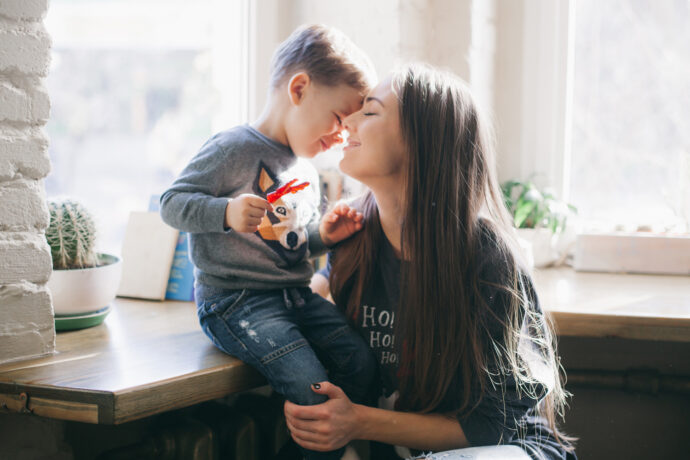I woke up early one morning in July, after a late night of talking through general life frustrations—the sort of things that damp humidity makes bubble to the surface. I made coffee and started cleaning the kitchen—because it was there, because I couldn’t sleep, because I needed to be busy. It started with the dishes, then the counter, the toaster oven, the buffet, the vintage set of glasses that Vincent and I bought in an antique store on a wintry weekend away last year. I can’t recall the last time I washed them, if ever. As the dust rinsed down the drain, I caught myself smiling at their shine and at the memory of choosing them with my husband and how carefully the clerk at the shop wrapped them.
And as I wiped months and months of dust and dog hair and bits of who-knows-what from the crevices of the buffet, I thought of how happy it made me when we’d found it on clearance last year, how much fun the kids had with us that day, spinning around on display furniture at the store and eating cookies from the little cafe.
The “Choose Happy” sign on the wall caught my eye, and I reflected on the way my attitude had shifted from restless and grumpy to light and happy, and I reflected on how much more joyful it is to care for what we already have (whether it’s relationships or vintage glasses), rather than to dwell on what we think could be missing.
We create happiness. We fight for happiness. Marriages aren’t happy or sad by chance—they are by choice. We either choose to fill our days with moments of thoughtful intention and attention, or we choose to fill them with moments that we relinquish to the chaos around us in the hope that, in the end, we’ll collapse into the evening together.
Happiness is work. It’s a lifetime of navigating choices and relationships with a goal: to be happy.
Happiness is work. It’s a lifetime of navigating choices and relationships with a goal: to be happy. For some, it can be as easy as reframing a moment or a day or an entire week of trudging through piles of laundry and steering screaming children through Target as they arch their backs and shake their fists. For others, it could be recognizing when counseling is necessary or when medications might help. Happiness is a mindset and an effort, and it is not guaranteed.
Joy, on the other hand, is a promise.
Joy exists, no matter how cluttered my kitchen counters are, no matter how many times I’ve found myself circling around the same argument with my teenager, no matter what my bank statement looks like or how many pieces of trash fall out of my minivan every time the kids open the door.
Joy is a gift. I don’t have joy because I earned it with hard work. It did not come tucked behind any diplomas. And I don’t have any joy because I have chosen it. I’ve chosen many things to make me happy: my husband, my work, parenthood, the vintage glassware that gathers dust on my kitchen buffet.
But joy is not merely a heightened version of happiness. It is not an emotion or a feeling that can falter or fade. I have joy because I embraced it—as a child, praying on my kitchen floor, as an awkward adolescent growing in my faith, as a burned-out mother of four living in a two-bedroom home in a trailer park, and as a tired woman slogging through a sweltering summer, doing the dishes at sunrise.
Perhaps that sign shouldn’t read “Choose Happy,” but rather, “Remember Joy.”
“I have told you this so that my joy may be in you and that your joy may be complete.”
—John 15:11





0 Comments